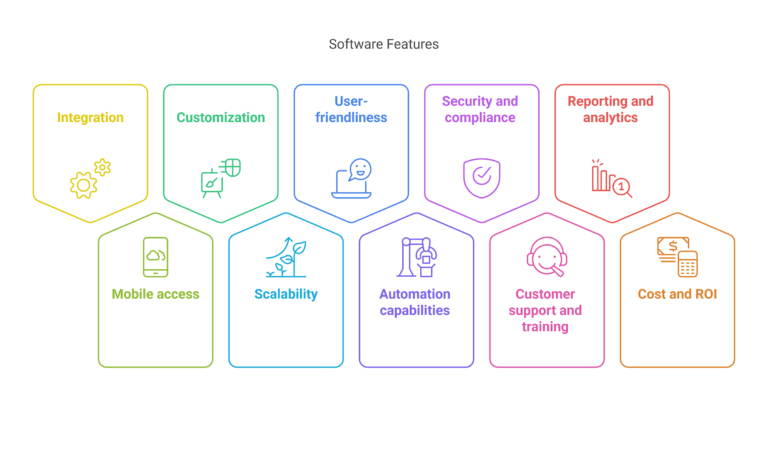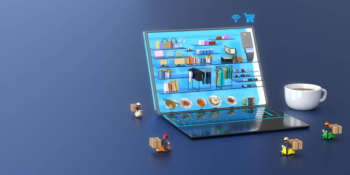Greetings! I'm Aneesh Sreedharan, CEO of 2Hats Logic Solutions. At 2Hats Logic Solutions, we are dedicated to providing technical expertise and resolving your concerns in the world of technology. Our blog page serves as a resource where we share insights and experiences, offering valuable perspectives on your queries.

Running an online business has never been more promising or more challenging. But with rapid growth comes growing pains, mounting costs, sluggish processes, and unhappy customers. That’s why forward-thinking businesses are turning to ERP (Enterprise Resource Planning) systems as their competitive edge.
Is an ERP system right for your business? Whether you’re drowning in spreadsheets or planning your next expansion, this guide will help you make the right decision with confidence.
Signs Your E-Commerce Business Needs an ERP System
As your e-commerce business grows, inefficiencies often emerge. Here are clear indicators it’s time to consider an ERP system:
- Order Errors Are Increasing: Frequent mistakes above a 2% error rate, can frustrate customers and lead to losses.
- Delayed Customer Service: Response times exceeding 24 hours can harm your brand reputation.
- Manual Reconciliation Challenges: Managing inventory, finances, and sales data manually creates inaccuracies and wastes time.
- Visibility Gaps in the Supply Chain: Without real-time data, stockouts and overstocking become unavoidable.
- Compliance Issues: Struggling with multi-region tax and regulatory requirements signals a need for automation.
- Growth Hurdles: Expanding into new markets or sales channels often brings complexity that only ERP can simplify.
- Lack of System Integration: Separate tools for accounting, inventory, CRM, and sales can lead to data silos and operational slowdowns.
- High Operational Costs: Increasing labor costs due to manual processes indicate inefficiency and the need for automation.
- Inconsistent Customer Experience: If order processing, pricing, or promotions differ across platforms, an ERP can centralize control.
- Difficulty in Data-Driven Decision Making: Without a unified system, analyzing trends, forecasting demand, and making strategic decisions becomes challenging.
Do you struggle to track inventory in real-time? Are order delays common in your business? Is reconciling financial data across multiple systems overwhelming?If you answered “yes” to any of these, an ERP system could be your solution.
Key Benefits of ERP for E-Commerce Businesses
An ERP system can be a game-changer. Here’s how:
- Increased Efficiency: Automates time-consuming tasks like order processing, inventory updates, and invoicing.
- Cost Savings: Reduces administrative costs by up to 25% and minimizes losses from errors and inefficiencies.
- Real-Time Insights: Provides accurate, data-driven decisions on inventory, sales, and financial performance.
- Improved Customer Experience: Faster order fulfillment, accurate tracking, and personalized service increase satisfaction.
- Scalability: Seamlessly supports high order volumes, new sales channels, and global expansion.
- Employee Productivity: Automates routine tasks, allowing your team to focus on strategic growth.
- Better Inventory Management: Prevents stockouts and overstocking by synchronizing real-time supply and demand.
- Seamless Multi-Channel Integration: Syncs data across marketplaces, websites, and physical stores for unified management.
- Stronger Compliance & Security: Ensures adherence to tax regulations, GDPR, and industry standards while safeguarding data.
- Enhanced Supplier & Vendor Management: Streamlines procurement, tracks supplier performance, and optimizes costs.
Types of ERP Systems
Choosing the right ERP system starts with understanding your options:
| Type | Key feature | Best for |
| Cloud-based | Accessible anywhere, scalable, lower costs | SMEs and growing businesses |
| On-premises | Hosted on local servers, customizable | Large businesses with IT infrastructure |
| Hybrid | Combines cloud and on-premises benefits | Businesses needing flexibility |
Key Considerations:

- Integration: Ensure compatibility with your e-commerce platform, payment gateways, CRM, and third-party tools.
- Mobile Access: Look for systems with mobile apps for real-time monitoring and decision-making on the go.
- Customization: Choose a system that adapts to your unique business needs and workflows.
- Scalability: Ensure the ERP can handle future growth, including increased transactions and multi-channel expansion.
- User-Friendliness: A complex system can slow adoption; and prioritize intuitive interfaces and ease of use.
- Automation Capabilities: Evaluate automation for inventory, order processing, and financial reporting.
- Security & Compliance: Ensure data encryption, role-based access, and compliance with industry regulations.
- Customer Support & Training: Opt for a provider that offers strong support, training, and ongoing updates.
- Reporting & Analytics: Advanced analytics and customizable reports help optimize business decisions.
- Cost & ROI: Consider the total cost of ownership, including licensing, implementation, and long-term ROI.
Features to Look For in an ERP System
Not all ERP systems are created equal. Focus on features that align with your goals:
- Inventory Management: Track stock levels in real-time across warehouses.
- Order Processing: Automate tracking, fulfillment, and shipping.
- Financial Management: Consolidate financial data and streamline reporting.
- Integration Capabilities: Connect with platforms like Shopify, WooCommerce, or Magento.
- Security Features: Protect data with encryption and multi-factor authentication.
- Scalability: Prepare for future growth with a system that evolves with your business.
Checklist for Integration:
- Can it handle international tax and currency requirements?
- Does it integrate with your existing systems?
How to Choose the Right ERP System?
Selecting the right ERP requires careful planning. Follow these steps:
- Define Business Needs: Identify challenges like inventory tracking or order management.
- Evaluate Vendors: Compare providers based on experience, support, and implementation timelines.
- Calculate ROI: Estimate cost savings and performance improvements using ROI calculators.
- Plan for Implementation: Allocate time for training, data migration, and change management.
When to Invest in an ERP System?
Timing is crucial when considering an ERP system. Businesses experiencing steady revenue growth often reach a point where manual processes become inefficient.
A high volume of orders can strain existing systems, leading to delays and errors. Expansion into new markets brings additional complexities, such as multi-currency transactions and regional compliance, which an ERP can simplify. As operations scale, managing multiple warehouses, sales channels, and suppliers becomes challenging without an integrated system. If these factors are affecting efficiency and growth, it’s time to invest in an ERP.
Challenges in ERP Implementation
While ERP systems offer immense benefits, implementation can be challenging. Here’s how to tackle common hurdles:
Resistance to Change: Involve employees early and emphasize the benefits of the system.
Cost Overruns: Budget for unexpected expenses like additional training or customizations.
Data Migration Issues: Work with experienced vendors to ensure a smooth transition.
Timeline Delays: Plan for implementation to take 3–12 months, depending on complexity.
Conclusion: Is ERP Right for Your Business?
Managing an e-commerce business shouldn’t mean endless spreadsheets and late-night inventory checks. ERP systems aren’t just for the corporates anymore, they’re as essential as your morning coffee. They handle the heavy lifting so you can focus on what truly matters: growing your business and keeping your customers smiling.
2Hats Logic will help you find the right ERP solution that fits your business like a glove because we believe your success is our success.
FAQ
What are the biggest benefits of ERP for e-commerce?
Faster order fulfillment, real-time inventory management, automated processes, cost savings, and seamless multi-channel integration.
How can 2Hats Logic help with ERP selection and implementation?
We analyze your business needs and recommend the best ERP solution to fit your operations, ensuring a smooth and successful implementation.
Is an ERP system worth the investment?
Absolutely! An ERP reduces costs, improves efficiency, and scales with your business, delivering long-term ROI.

Related Articles






